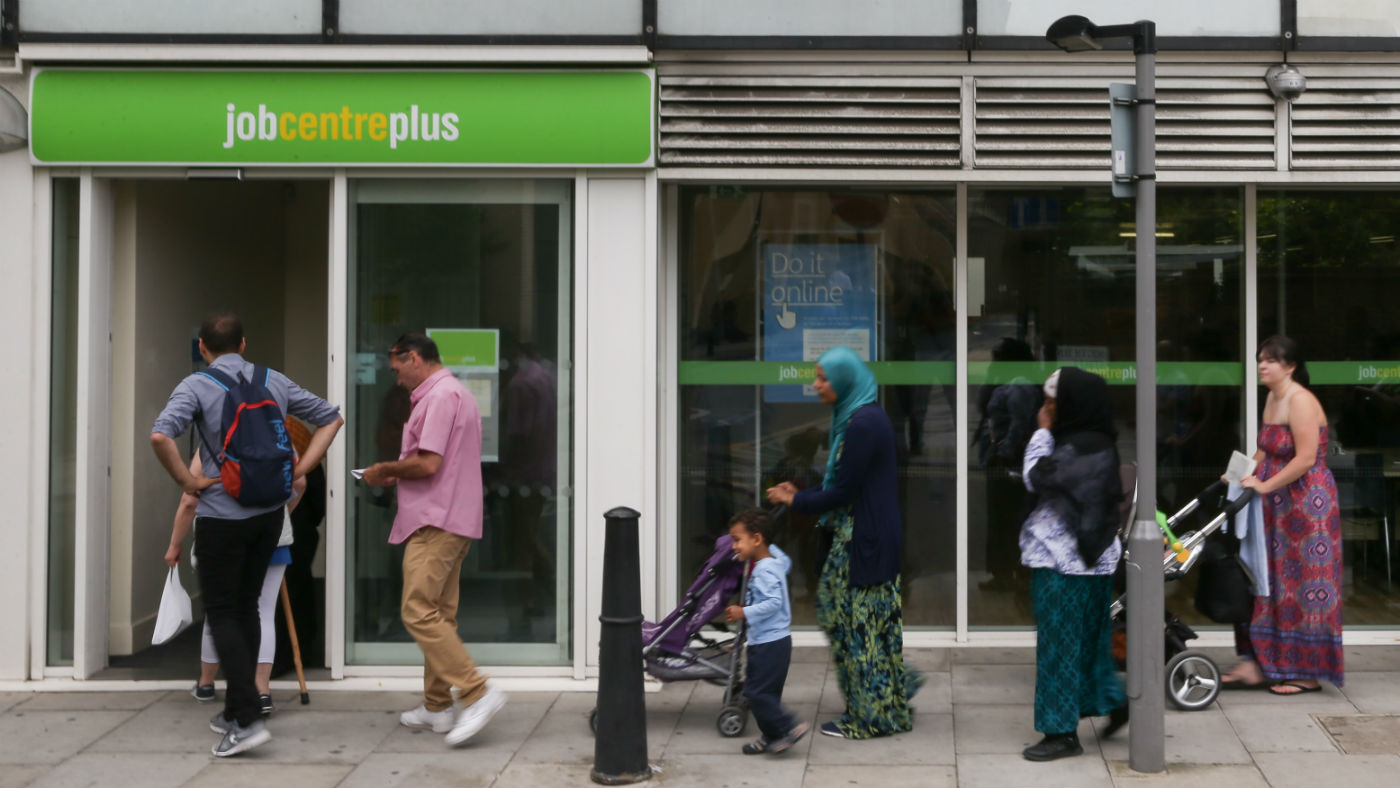Real wages to fall as 24 chase each low-skilled job
A survey of 1,000 UK firms predicts basic pay will rise by just 1% next year, less than inflation

A free daily email with the biggest news stories of the day – and the best features from TheWeek.com
You are now subscribed
Your newsletter sign-up was successful
Real wages will continue to fall over the next year, due to a glut of job applicants and despite record low unemployment.
That is the conclusion of the Chartered Institute of Personnel and Development and staffing group Adecco, which surveyed more than 1,000 British firms. They predict basic pay will rise by just one per cent over the next year, less than inflation, which is expected to reach three per cent.
The institure attributes low wage growth to a range of factors, including Brexit uncertainty, weak productivity and the rise in the National Living Wage.
The Week
Escape your echo chamber. Get the facts behind the news, plus analysis from multiple perspectives.

Sign up for The Week's Free Newsletters
From our morning news briefing to a weekly Good News Newsletter, get the best of The Week delivered directly to your inbox.
From our morning news briefing to a weekly Good News Newsletter, get the best of The Week delivered directly to your inbox.
However it says another major factor is an oversupply of job applicants. There are a median of 24 job seekers applying for every low-skilled position, compared with 19 for medium-skilled and eight for high-skilled jobs.
The Daily Telegraph said the finding, which shows a "relatively sharp" increase in job applicants from EU countries, "contradicts claims that Brexit is restricting the supply of low-skilled labour".
However, despite unemployment being at a 40-year low, "employee pay expectations were weaker than last year, suggesting employers may not be coming under pressure from workers to increase pay", says Business Insider UK.
The CIPD's Gerwyn Davies said: "Predictions of pay growth increasing alongside strong employment growth is the dog that hasn't barked for some time now, and we are still yet to see tangible signs of this situation changing in the near-term."
A free daily email with the biggest news stories of the day – and the best features from TheWeek.com
-
 Political cartoons for February 21
Political cartoons for February 21Cartoons Saturday’s political cartoons include consequences, secrets, and more
-
 Crisis in Cuba: a ‘golden opportunity’ for Washington?
Crisis in Cuba: a ‘golden opportunity’ for Washington?Talking Point The Trump administration is applying the pressure, and with Latin America swinging to the right, Havana is becoming more ‘politically isolated’
-
 5 thoroughly redacted cartoons about Pam Bondi protecting predators
5 thoroughly redacted cartoons about Pam Bondi protecting predatorsCartoons Artists take on the real victim, types of protection, and more
-
 Will Trump’s 10% credit card rate limit actually help consumers?
Will Trump’s 10% credit card rate limit actually help consumers?Today's Big Question Banks say they would pull back on credit
-
 Ski town strikers fight rising cost of living
Ski town strikers fight rising cost of livingThe Explainer Telluride is the latest ski resort experiencing a patroller strike
-
 What will the US economy look like in 2026?
What will the US economy look like in 2026?Today’s Big Question Wall Street is bullish, but uncertain
-
 Is $140,000 the real poverty line?
Is $140,000 the real poverty line?Feature Financial hardship is wearing Americans down, and the break-even point for many families keeps rising
-
 Employees are branching out rather than moving up with career minimalism
Employees are branching out rather than moving up with career minimalismThe explainer From career ladder to lily pad
-
 Fast food is no longer affordable for low-income Americans
Fast food is no longer affordable for low-income AmericansThe explainer Cheap meals are getting farther out of reach
-
 Out of office: Microretirement is trending in the workplace
Out of office: Microretirement is trending in the workplaceThe explainer Long vacations are the new way to beat burnout
-
 Why has America’s economy gone K-shaped?
Why has America’s economy gone K-shaped?Today's Big Question The rich are doing well. Everybody else is scrimping.